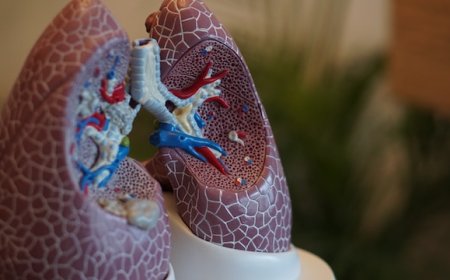The Role of Mitochondria: Powerhouse of the Cell Explained
Uncover the amazing powers of mitochondria, the miniature energy factories inside our cells. Learn how these tiny powerhouses impact every aspect of your life, in an engaging and easy-to-understand explanation.

Have you ever wondered what powers your body enabling you to walk, talk, think, and live? In this article about the science of the body. Meet the mitochondria - the microscopic power plants inside your cells that keep you running like a well-oiled machine.
Imagine yourself at a music festival. The music is pumping, lights are flashing, and people are dancing. Now, picture the massive generators backstage, tirelessly supplying the electricity needed to power the event. In this scenario, your body is the music festival, and the generators are the mitochondria.
Mitochondria are unique structures, or organelles, within your cells. They’re often referred to as the "powerhouses of the cell" because they generate most of the cell's supply of adenosine triphosphate (ATP), the primary source of energy for many cellular processes.
Let's put that into perspective. You know how your phone needs to be charged to function? Similarly, your body's cells need a constant supply of energy to carry out their duties. That's where mitochondria come in, acting as the charging stations, replenishing the energy your cells need to keep you going.
Mitochondria are hardworking and efficient. They produce ATP through a process called cellular respiration. This is like a complex chemical equation, where glucose (sugar) from the food you eat and oxygen you breathe are converted into ATP, water, and carbon dioxide.
To visualize this, think of a car. It runs on gasoline, which is converted into energy to power the vehicle. Similarly, mitochondria use the fuel (glucose) you give them and turn it into energy (ATP) your body can use.
But mitochondria aren't one-trick ponies. They're also involved in other vital tasks, like regulating cell growth and death and helping the immune system. It's like they're not just the generators at the festival but also the event planners and security staff.
However, when mitochondria don't function correctly, it can lead to severe health problems, akin to a blackout at the music festival. For instance, mitochondrial diseases can cause symptoms ranging from muscle weakness to neurological issues, emphasizing how critical these tiny powerhouses are to our health and well-being.
In essence, mitochondria are the unsung heroes of your body, helping you live, laugh, move, and even read this article. They are a testament to the complexity and beauty of life at a microscopic level.
So, the next time you're dancing the night away, sprinting for the bus, or simply enjoying a hearty laugh, remember the mighty mitochondria. They're working round the clock, powering every cell and every moment of your life, just like the diligent generators ensuring the music never stops at the festival.
In understanding the role of mitochondria, we gain an appreciation for the intricate workings of our bodies. We realize that behind every movement, every thought, and every heartbeat, there's a microscopic world tirelessly working to keep us alive and thriving.
Remember, while you go about your day, your mighty mitochondria are always at work, ensuring you have the energy to live your life to the fullest. So, here's to the powerhouse of the cell - the mitochondria, the unsung heroes that truly light up our lives.
Disclaimer: The image(s) featured in this article are for illustrative purposes only and may not directly depict the specific concepts, situations, or individuals discussed in the content. Their purpose is to enhance the reader's understanding and visual experience. Please do not interpret the images as literal representations of the topics addressed.
What's Your Reaction?













































































































